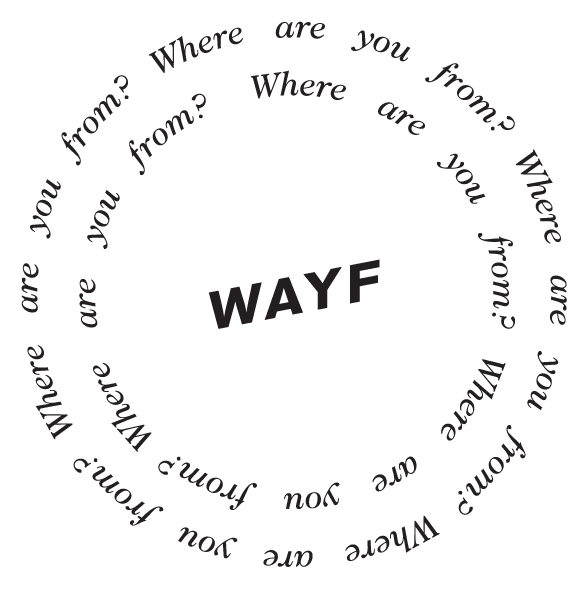The whitest postcode in Australia
Aleks Hammo
I was raised in Carlton North. It was unusual being mixed- race in what felt like the whitest postcode in Australia. I went to public schools that were attended by kids who came from wealthy connected families, and to the people around me, my identity didn’t make sense. I was ethnically ambiguous. I didn’t have nice clothes, I wasn’t picked up in a big four-wheel drive—I was raised by a single mum who drove a tiny car, and who, despite being someone who originated abroad, couldn’t afford to take us to visit our family overseas.
My family was very new to Australia. My parents met in Paris, where I was born in 1996. They moved to Melbourne together soon after. My parents separated when I was young, and while my mum was busy with work, my Baba raised me. Baba didn’t speak English, mum spoke Macedonian and was a French teacher, and my dad’s first languages were Arabic and French. There were many languages going around our house.
My mum’s family felt very alone. They missed their family in Macedonia. My dad’s story is similar. He is the eldest of ten siblings, and was the only one to leave the family unit. I never understood why he wouldn’t tell me about his history, beyond telling me how poorly he has been treated in predominantly white cities, especially in Paris. His dream has always been for me to be able to start again. He didn’t give me an Arabic name or teach me his language. He has never wanted me to go to Algeria, and he didn’t raise me with Islam. I have memories of conversations with him, where he would ask, ‘Did you ever wonder why I didn’t speak to you in Arabic? Or why your mother and I decided not to force you into any faith?’ I couldn’t understand his pain until I was old enough to begin answering these questions myself, by going to France and studying what colonialism and racism do to people.
I didn’t know I wasn’t white until I was about 19. A friend — who I had known my whole life and grew up in the same street, 100 metres away—told me that his partner, who is a woman of colour, asked him how much I identified as a person of colour. ‘He never talks about it,’ she said. ‘Why doesn’t he talk about it?’ I realised I didn’t really have the language. What came after was a wake-up call. My feelings of difference had a lot of context. I spent my childhood wondering whymy parents weren’t like other parents. Why didn’t they buy a house? Do normal family dinners? Have a beach house?
I began reflecting on the complexities of my dad’s character and how that related to him being born into the Algerian war of independence. I learned that some things are so painful that the only way people can deal with them is by burying them. I could recognise that my dad’s pain and silence was also part of my story. Despite 150 years of French occupation— the enduring legacy of colonialism, the violent racism, the hatred, and the Islamophobia—my history and culture are still with me.
In 2017, I met some of my dad’s family for the first time. It felt pretty crazy seeing people who looked like me, after all these years of never seeing anyone who looked like me. People who move the same way as my parents, but who aren’t my parents. It felt like a well in my brain that’s been empty, but that’s slowly being filled up.
